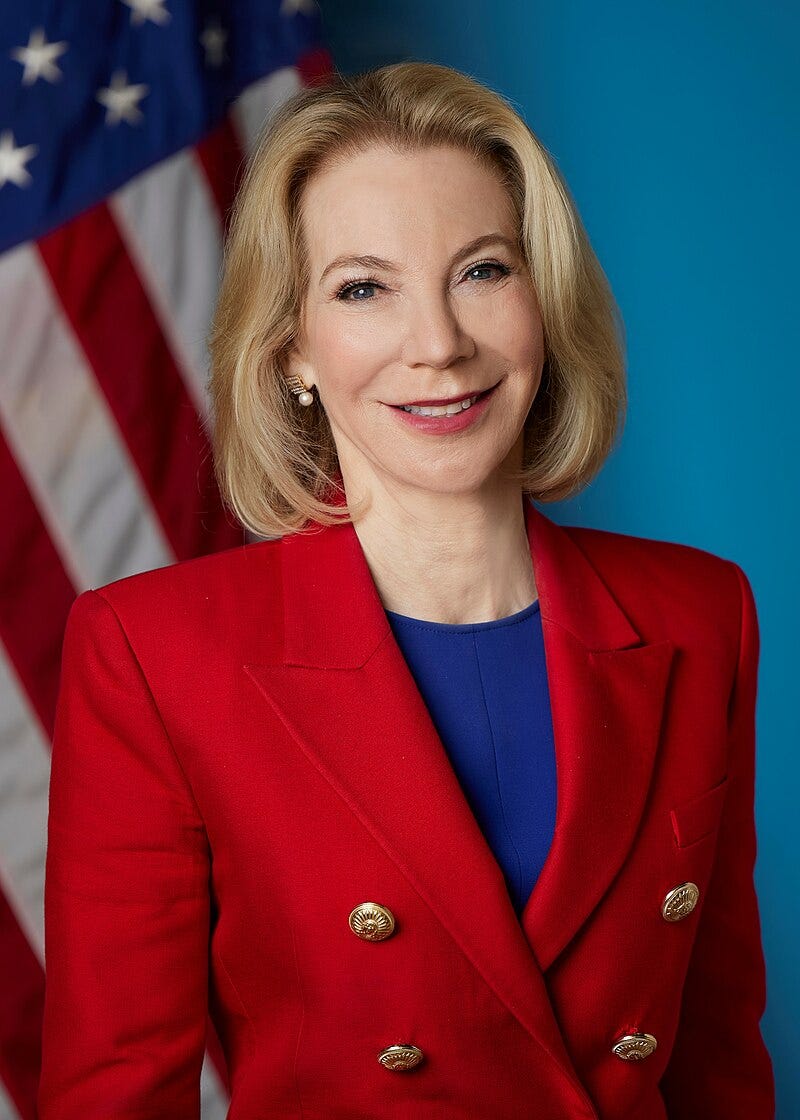
Amy Gutmann is the distinguished political science professor at the University of Pennsylvania. She was the former president of the university, holding the position for 18 years between 2004 and 2022. Additionally, she served as the U.S. ambassador to Germany during the Biden administration.
Gutmann was born in Brooklyn, New York, in 1949 and grew up in lower New York as an only child. In a 2011 interview she did with the New York Times, Welcoming the Wild Ideas of the Week, Gutman states her major influences being her father and her 8th grade school teacher for the lessons of courage and enthusiasm in work.
She received her bachelor’s degree and Ph D from Harvard University and her master’s from the London school of Economics, all in political science.
Theorizations:
Gutmann was particularly interested in the theories of democratic education, deliberative democracy, and group identity. Her three major works, Democratic Education, Democracy and Disagreement, and Identity In Democracy, respectively evoke her interest and general thought that educated and respectful democratic debate improved democratic systems as it can help eliminate polarization or minimize its effects.
In Democratic Education, Gutmann emphasizes the importance of education, or the school system, in developing democratic values like freedom, opportunity, and mutual respect. She assesses that these institutions provide people not just educational knowledge but knowledge on how to be a member of a democratic society. She argues that these institutions need to be doing this correctly. Schools often act as the largest generator of social capital; thus, what’s being taught, how it’s being taught, and who is teaching it, all play a major role in the social and political understandings of the children that go on to be the adults of our society.
Her argument that education needs to prime individuals to be functioning members of a democracy coincides with what she argues being a functioning member of a democracy looks like. Her book, Democratic Disagreement, explores the theory of deliberative democracy. Here, Gutmann argues that under adversity, diversity, or any other conflict of ideals, citizens and representatives in a democracy must be able to not simply tolerate them but accept them and work to find befitting solutions. She argues that this theory and the methods she prescribed in her work could reduce dramatic misunderstandings and disagreements people can form against one another which would decrease polarization, on of the largest ills plaguing political progress in the U.S.
Finally, Identity in Democracy seeks to analyze how the groups people identify with shape their political perception. This work offers much of the same analysis as Democratic Education, in that Gutmann identifies identity groups as civil society groups and how they work to influence our political opinions, which influence our view and toleration of other identity groups and their political views. Here, she finds that, unlike education, you cannot reshape identity groups or how people feel about them. She finds that people find themselves and usually live their lives in accordance with these groups and their principles. She again finds that the differences among people need to be separated for effective political discourse. Although one cannot be separated from whom they Identify with, it is important for a constant self-monitoring of thought to ensure we are thinking for ourselves and questioning if we disagree with something because we truly don’t like it or because the messenger is not of the group.
To summarize:
Gutmann ultimately questions what prevents positive political discourse. She reasons that institutions, such as education and identity groups, work to influence how citizens and representatives in a democratic society work with one another. If the institutions are not properly run or if identity groups infiltrate perceptions, deliberative democracy is what can help individuals question their animosity and be better able to accept and reasonably evaluate the arguments of the opposition.
Amy Gutmann serves as a key thinker in how diverse democratic societies can function. Her works can be used to help understand issues plaguing democracy now, such as the increased rate of political polarization and diminished participation in civil society. Gutmann is alive and contributing to these conversations and must be noted for her contributions, which help narrow the road to finding a solution.



